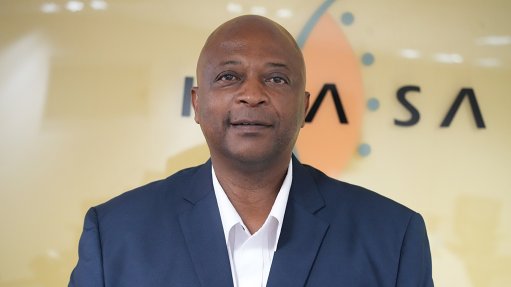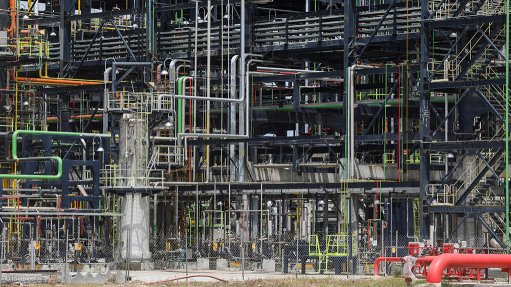Africa one of only two regions achieving FDI project growth – EY
Sub-Saharan Africa remains one of the fastest growing regions in the world according to advisory firm EY’s 2016 Africa attractiveness programme, entitled Staying the course.
This is reflected in the foreign direct investment (FDI) levels in 2015, where FDI project numbers increased by 7%.
Although the capital value of projects was down, from $88.5-billion in 2014, to $71.3-billion in 2015, this was still higher than the 2010 to 2014 average of $68-billion.
Similarly, jobs created were down year-on-year, but, again ahead of the average for 2010 to 2014.
“Over the past year, global markets have experienced unprecedented volatility. We’ve witnessed the collapse of commodity prices and a number of currencies across Africa, and with reference to the two largest markets, starting with South Africa, we saw gross domestic product growth decline sharply to below 1% and the country averting a credit ratings downgrade,” said EY Africa CEO Ajen Sita.
He added that the slowdown in Nigeria was impacted further by the decline in the oil price and currency devaluation pressure.
“The reality is that economic growth across the region is likely to remain slower in coming years than it has been over the past 10 to 15 years, and the main reasons for a relative slowdown are not unique to Africa. In fact, Africa was one of the only two regions in the world in which there was growth in FDI project levels over the past year,” he said.
According to the programme, in 2015, East Africa recorded its highest share of FDI across Africa, achieving 26.3% of total projects.
Southern Africa remained the largest investment region on the continent, although projects were down 11.6% from 2014 levels.
The West Africa region saw a rebound in FDI projects by 16.2%, and, interestingly, in 2015, the region became the leading recipient of capital investment on the continent, outpacing Southern Africa.
North Africa experienced 8.5% year-on-year growth in FDI projects.
While projects were increasing in North Africa, they were increasing at a much faster rate in sub-Saharan Africa.
“In a context of heightened concerns about economic and political risk across the continent, FDI flows remain robust, and in line with levels we have seen over the past five years,” said EY Africa business director Michael Lalor.
He noted that a key factor was the structural shift in FDI — from a high concentration of source countries and destination markets and sectors to a far more diverse FDI landscape.
“As a result, risks and opportunities are being spread much wider and there is no longer an overdependence on a limited group of investors or sectors to drive FDI performance,” he said.
The US retained its position in 2015, as the largest investor in the continent, with 96 investment projects valued at $6.9-billion.
Traditional investors such as the UK and France, as well as the United Arab Emirates and India, also showed renewed interest in Africa.
The programme highlighted that, over the past decade, there has been a shift in sector focus in FDI from extractive to consumer-facing industries.
Mining and metals, coal, oil and natural gas, which were previously the key sectors attracting major FDI flows, have given way to consumer products and retail, financial services and technology, media and telecommunications, accounting for 44.7% of FDI projects in 2015.
Further evidence of sector diversification became evident last year, with business services, automotive, cleantech and life sciences all rising in significance and becoming the likely “next wave” for investors.
Sita commented that, given the growth potential in and relative underdevelopment of many African markets, the primary focus for many companies over the past few years has been on entering new markets, capturing market share and driving revenue growth.
“A combination of factors – including tightening economic conditions, increasingly well-informed consumers and citizens and intensifying competition – is now driving a change in focus toward striking a greater balance between growth, profitability and risk management,” he said.
Comments
Press Office
Announcements
What's On
Subscribe to improve your user experience...
Option 1 (equivalent of R125 a month):
Receive a weekly copy of Creamer Media's Engineering News & Mining Weekly magazine
(print copy for those in South Africa and e-magazine for those outside of South Africa)
Receive daily email newsletters
Access to full search results
Access archive of magazine back copies
Access to Projects in Progress
Access to ONE Research Report of your choice in PDF format
Option 2 (equivalent of R375 a month):
All benefits from Option 1
PLUS
Access to Creamer Media's Research Channel Africa for ALL Research Reports, in PDF format, on various industrial and mining sectors
including Electricity; Water; Energy Transition; Hydrogen; Roads, Rail and Ports; Coal; Gold; Platinum; Battery Metals; etc.
Already a subscriber?
Forgotten your password?
Receive weekly copy of Creamer Media's Engineering News & Mining Weekly magazine (print copy for those in South Africa and e-magazine for those outside of South Africa)
➕
Recieve daily email newsletters
➕
Access to full search results
➕
Access archive of magazine back copies
➕
Access to Projects in Progress
➕
Access to ONE Research Report of your choice in PDF format
RESEARCH CHANNEL AFRICA
R4500 (equivalent of R375 a month)
SUBSCRIBEAll benefits from Option 1
➕
Access to Creamer Media's Research Channel Africa for ALL Research Reports on various industrial and mining sectors, in PDF format, including on:
Electricity
➕
Water
➕
Energy Transition
➕
Hydrogen
➕
Roads, Rail and Ports
➕
Coal
➕
Gold
➕
Platinum
➕
Battery Metals
➕
etc.
Receive all benefits from Option 1 or Option 2 delivered to numerous people at your company
➕
Multiple User names and Passwords for simultaneous log-ins
➕
Intranet integration access to all in your organisation


















